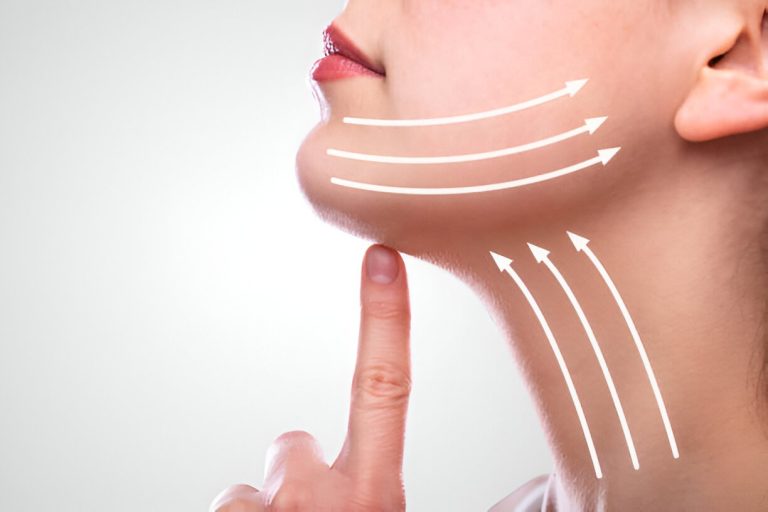Welcome to the glamorous world of facelifts and neck lifts, where your quest for youthful vitality meets cutting-edge cosmetic surgery in the heart of Texas. Whether you’re an Austinite looking to rejuvenate your appearance or a newcomer drawn to the city’s renowned medical expertise, this guide will navigate you through the benefits of combining a facelift with a neck lift in Austin, TX. Buckle up, as we dive into the dazzling realm of cosmetic enhancement and uncover why Austin is the perfect place for your aesthetic journey.
Facelifts and neck lifts are more than just cosmetic indulgences; they’re life-changing procedures with a plethora of benefits. Both surgeries combat visible signs of aging, such as sagging skin, deep wrinkles, and loose jowls. Facelifts tighten the skin around the face, while neck lifts focus on the neck area, creating a harmonious, youthful contour.
Revitalizing your look can dramatically improve your self-esteem. A refreshed appearance often translates into enhanced confidence, influencing both personal and professional spheres. Facelifts reshape the facial structure by removing excess skin and tightening underlying tissues. Neck lifts smooth and redefine the neck and jawline, creating a seamless transition from face to neck.
These procedures offer enduring results, often lasting for several years. The effects of a facelift and neck lift provide a timeless, elegant look, reducing the need for frequent touch-ups.
Table of Contents
Am I a Candidate for a Combination Facelift and Neck Lift?
Not everyone is a perfect candidate for these transformative procedures. Ideal candidates generally include:
- Healthy Individuals: Patients should be in good overall health, without any medical conditions that might complicate surgery or recovery. Chronic illnesses or unstable health conditions can interfere with the healing process.
- Realistic Expectations: Candidates should have realistic expectations about the results. Understanding what a facelift and neck lift can and cannot achieve helps in setting achievable goals.
- Aging Concerns: Typically, individuals between 40 and 70 years old seek these procedures. However, age isn’t the sole factor. Significant skin laxity or visible signs of aging drive many to opt for these treatments.
- Non-Smokers: Smoking impairs healing and can lead to complications. Non-smokers or those willing to quit before and after surgery have better outcomes.
A facelift procedure targets sagging facial skin, deep nasolabial folds (smile lines), and jowls. It tightens the skin and underlying tissues, rejuvenating the face with a more youthful appearance. Meanwhile, a neck lift addresses sagging skin and excess fat around the neck and jawline. It smooths out “turkey wattle” or “double chin” issues, creating a refined, sleek neck profile.
How Can a Facelift and Neck Lift Transform Lives?
The impact of a facelift and neck lift extends beyond mere aesthetics.
- Enhanced Self-Esteem: Many patients report a significant boost in self-esteem and confidence post-surgery. Feeling good about one’s appearance often leads to improved social interactions and personal satisfaction.
- Revitalized Social and Professional Life: A refreshed look can rejuvenate your social presence and professional image. People often feel more confident and assertive, which can open new doors in various aspects of life.
- Emotional Well-Being: The psychological benefits of a more youthful appearance can include increased happiness and satisfaction. Addressing concerns about aging can improve overall emotional well-being.
Combining a facelift with a neck lift offers a range of benefits that provide comprehensive rejuvenation, targeting both the face and neck simultaneously. Here’s a deep dive into why pairing these two procedures can be particularly advantageous:
Comprehensive Rejuvenation
A facelift addresses signs of aging on the face, such as sagging skin, deep wrinkles, and jowls. A neck lift, on the other hand, focuses on the neck area, smoothing out excess skin and fat, and tightening underlying muscles. Combining these procedures ensures that the entire facial area, including the neck, receives a unified, cohesive rejuvenation. This comprehensive approach results in a harmonious and balanced appearance, rather than a piecemeal correction.
Improved Facial Harmony
The face and neck are interconnected, and aging can affect both areas simultaneously. Treating them together ensures that the transition from the face to the neck is seamless. Without a neck lift, a facelift alone might leave a noticeable disparity between the rejuvenated face and an aging neck, leading to an unnatural or less satisfying result.
Enhanced Aesthetic Outcomes
By addressing both the face and neck, the combined approach smooths out and tightens the skin, reducing sagging and improving contours. This results in a more youthful and refreshed appearance, with defined jawlines and necklines that complement the enhanced facial features.
What Are the Different Facelift and Neck Lift Options Available?
The world of facelifts and neck lifts offers a range of techniques, each catering to different needs and preferences:
- Traditional Facelift: Also known as a full facelift, this technique involves making incisions around the hairline and behind the ears to lift and reposition the facial skin and underlying muscles.
- Mini Facelift: This less invasive option focuses on the lower face and jawline. It involves smaller incisions and is ideal for patients seeking moderate rejuvenation.
- Endoscopic Facelift: Using small incisions and a camera, this technique allows for precise adjustments with minimal scarring. It’s suitable for younger patients or those with less severe signs of aging.
- Cervicoplasty and Platysmaplasty: These are specialized neck lift techniques. Cervicoplasty removes excess skin, while platysmaplasty tightens the neck muscles for a more defined look.
Immediate results are visible once the swelling subsides, usually within a few weeks. However, the final outcome can take several months to fully materialize as residual swelling diminishes and the skin adjusts. Patience is key to enjoying the complete benefits of your transformation.
Opting for a board-certified plastic surgeon ensures that you’re in capable hands. These surgeons have undergone rigorous training and adhere to the highest standards of safety and ethics. Their expertise directly impacts the quality of your results and your overall experience.
Why Is Austin, TX, an Ideal Location for Facelift and Neck Lift?
Austin stands out as a premier destination for cosmetic surgery, thanks in part to its expert surgeons. The city boasts a range of highly skilled, board-certified plastic surgeons known for their precision and artistic ability.
The city’s dynamic atmosphere and lifestyle appeal to those seeking both aesthetic enhancement and a rejuvenating experience. Austin’s cosmetic surgery clinics utilize the latest technology and techniques, offering state-of-the-art care. Clinics in Austin prioritize patient comfort and satisfaction, ensuring a smooth, personalized journey through the surgical process.
Embarking on a facelift and neck lift journey in Austin, TX, opens doors to a rejuvenated, more youthful version of yourself, backed by the expertise and innovation of top-notch cosmetic professionals. With careful consideration and the right choice of surgeon, these transformative procedures can significantly enhance your life, confidence, and sense of well-being.









